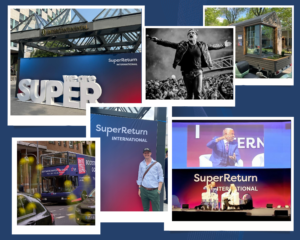Heard on the private equity fundraising trail. Part II
Continuing from Part I, this article dives deeper into the curious, standardized questions, statements, and feedback often heard from LPs during private equity fundraising meetings. While some are well-intentioned, others can leave GPs scratching their heads—or cringing.
Here’s a closer look at some of these interactions and what they might really mean for GPs.

“Do you offer co-investments?”
This question is frequently asked, but the motivations behind it vary widely. While some LPs are genuinely interested in co-investments (CIs) to enhance returns and reduce fees, others see them as a way to play GP. Co-investments offer LPs a chance to take a more active role, sometimes even justifying carry within their own organizations.
For GPs, the real frustration often comes after offering CIs to such LPs. Despite their deep pockets, many lack the infrastructure or expertise to manage the process, resulting in drawn-out negotiations or dropped commitments. Even when they do commit, these LPs may rationalize their investment as “smart money”—trusting entirely in the GP. But if things go south, these same LPs may panic and fail to provide additional equity when needed.
GPs should tread carefully, assessing both the motivation and capabilities of LPs interested in co-investments, regardless of their check size.
“What do you think of Fund XYZ?”
A question like this is toe-curling for most GPs. What exactly is the LP looking for? Are they conducting due diligence on Fund XYZ? If so, wouldn’t requesting a formal reference be more professional?
The reality is that commitments can sometimes be this random. For the GP, the best approach is to respond diplomatically—without disparaging the competitor—and use the opportunity to subtly highlight their own fund’s strengths.
“Who are your competitors?”
This follow-up to the Fund XYZ question can also be uncomfortable. If the GP claims to have no competitors, it’s not a credible answer. But if the LP genuinely doesn’t know, it raises concerns about their own due diligence.
For GPs, this question is an opportunity to differentiate. Articulate what sets you apart without directly criticizing competitors. Positioning your fund as uniquely valuable is key.
“That sounds (very) interesting,” followed by an awkward silence
This is one of those moments GPs dread. It often follows a one-sided meeting where the GP did all the talking and the LP seemed disengaged.
For LPs who are genuinely interested, this phrase is typically accompanied by more questions or discussion. Without that follow-up, it’s likely a polite dismissal or an indication that the LP wasn’t really paying attention.
To recover, GPs should ask open-ended questions like, “How does this align with your strategy?” This can prompt the LP to share feedback or even reopen the conversation.
Nothing. Just awkward silence.
Silence is worse than a lukewarm “That sounds interesting.” It’s a signal that something is off—whether the LP has tuned out or the pitch failed to resonate.
The best way to handle this is to ask direct, closed-ended questions like, “Is this something that interests you?” At the very least, you’ll know whether they’re genuinely disinterested or simply zoning out.
Improving the Quality of Pitch Meetings
Bad pitch meetings happen more often than they should. While GPs, placement agents, and LPs can all do more to prepare, the reality is that these sessions often fall short of their potential.
For GPs, the key takeaway is to remain adaptable. Use awkward moments to seek feedback, build relationships, and refine future pitches. Fundraising is rarely straightforward, but with preparation and persistence, even challenging meetings can offer valuable insights.
Stay tuned for more reflections on the private equity fundraising trail.
Stay Illiquid
Kasper
More Insights
Balentic Edge
Sign up to keep up to date with the latest news and updates.
© 2025 Balentic ApS. CVR: 44034255. All rights reserved.
Privacy Policy | Terms of Service
The Balentic website and Orca are, and are expected to continue to be, under development. Consequently, some of the features described in this Overview and/or on the website may not yet be available or may work differently. Some features may furthermore not be available to all users.


